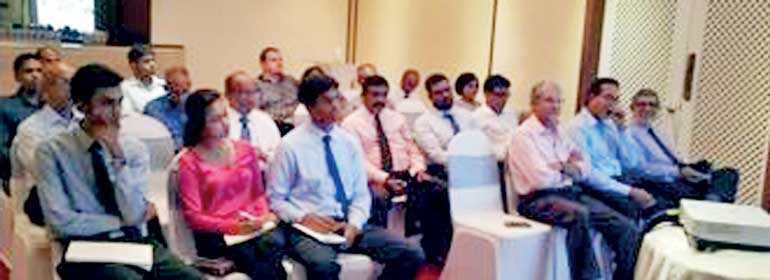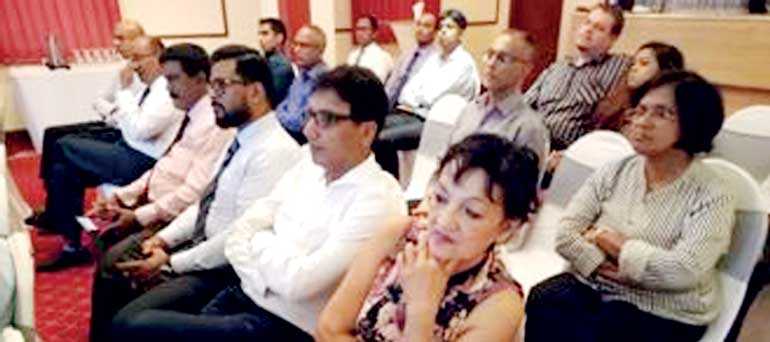Sunday Feb 15, 2026
Sunday Feb 15, 2026
Monday, 29 October 2018 00:00 - - {{hitsCtrl.values.hits}}



The topic of discussion was titled, ‘The changing International Business Environment, the realities of the Sri Lankan business dynamics and why Sri Lankan management thinking needs to change’. The key point stressed at this presentation was that although the future success demands being able to survive in a globally competitive environment there are a few Sri Lankan companies that are well on this path. The opportunity awaits many more who can make this transition.
The first step is to recognise the rapidly changing international business environment both internationally and in Sri Lanka. The most significant change agent is and will continue to be the technological disruptions. Everything from E commerce, virtual and augmented reality, artificial intelligence, electronic implants and access to information is significantly disrupting the way we do business in mind blowing ways. The dominance of traditional retail has been significantly changed by companies such as Amazon. Initiatives such as IBM’s Watson will change the way lawyers and doctors practice their profession. Drones was significantly altered agriculture, logistics and other fields.
The second point to note is the global economic power shifts. The raise of China and the increasing influence of India and possible economic power shifts to countries such as Mexico have will significantly change how we do business and the place of the USD has the world’s trade currency
Sri Lanka needs to recognise the impact of trade liberalisation and the need to compete in a global marketplace. This requires a complete mindset change about our current manufacture and trading model. We need to carefully strategise what industries we can play in and the dynamic of manufacture vs services. Some Sri Lankan companies have incorporated this change and have become world class niche players by embracing the latest technology, building strategic partnerships with global players and using the latest production techniques such as the 4.0 factory concepts.
There will also be a massive change in the labour market both skilled and unskilled as well as white collar workers. Right skilling of people to avoid a significant deficit is critical
Finally, the effects of climate change, scarcity of resources particularly with reference to Sri Lanka’s agricultural sector need to be considered. The drought of 2016/17 is a stark reminder of this fact.
The consumer mindset has also changed with the raise of the millennials and generation z as well as urbanisation and a growing middle class. The fallout of this has been a customisation and design led product development, the boutique brand, demand that organisations demonstrate purpose and values. In addition, of course the ever-increasing demand for convenience and technology enabled solutions.
How we must look at business differently? What do we need to do to compete in this environment?
Firstly, we must be distinctive. Sri Lanka cannot complete in terms of economies of scale in most cases, so differentiation is key. Secondly, we must develop our technology, service mindset, data analytics to have personalised engagement with customers. Use of latest CRM tools, big data analytics, crowdsourcing devices, listing tools, and rigorous employee training and motivation is needed. We need to also closely examine all avenues of increasing leverage through mergers, acquisitions and strategic relationships. Companies are increasingly focusing on core activities and outsourcing the rest to specialists in those areas. Finally, as the mantra goes fail quickly and fail small. The ability to move quickly learn from your mistakes and keep changing your model until you find what works.
So what are the skills needed for the future? Several studies including one conducted by West Monroe partners point to the following skills: Technology management, soft skills development, results only work environments, out centric leadership, transparency, emotional intelligence, tension tolerant collaboration. For example, soft skill development and creativity are becoming increasingly important in a world where managing people have changed to a more collaborate style. In a famous example Indra Nooyi, CEO of PepsiCo, wrote the parents of the employees thanking them for the gift of their child to the company. Learning of the future will be more about techniques of how to rapidly acquire skills and information and rapidly retool as opposed to learning any static skills or body of knowledge per say. An interesting and thought provoking presentation concluded with an interactive session of questions.